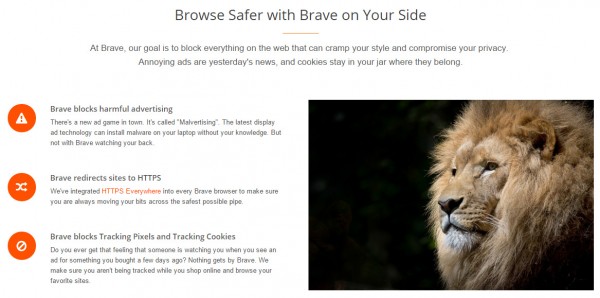Mozilla’s former CEO, Brendan Eich, has unveiled a new browser called “Brave”. What’s interesting about Brave is the fact that it blocks third party ads by default, which ensures a more private web browsing experience for users. However, there is one thing that one should consider before trying out the web browser.
According to Eich, the Brave browser will block ads by default, which is done by introducing the “HTTPS Everywhere” feature that redirects websites to a more secure connection protocol. In addition to that, Brave also blocks tracking pixels and cookies to ensure private browsing. The PC version of the web browser is said to be based on Chromium (open-source web browser project). In addition to that, the iOS version will be based on Firefox for iOS, while the Android version may be based on Link Bubble.
Instead of completely removing ads, Brave substitutes third party ads with its own. This basically means that Brave will display ads from advertisement networks that work directly with the company. However, most users won’t be too happy about the idea injecting these kinds because this feature may be easily exploited to spread malicious codes instead. In addition to that, it may affect the formatting of a particular web page and cause rendering issues. Despite this, Eich mentioned that Brave will only insert ads in few, “standard-sized” spaces.
That’s not all, Brave will also receive 15% of ad revenue from networks that work directly with the new browser. However, aside from giving 70% of the ad revenue to the respective advertisement publisher and suppliers, the last 15% ad revenue portion is supposedly given to the user, which can then be used to make micropayments in several websites.
Unfortunately, the web browser does not have a binary executable yet. The only way to download the Brave browser is through Github, which needs be complied first. Beta testers may register at Brave’s official website to be added into a waiting list to test the program for themselves. Whether or not Brave will get a good reception from consumers remains to be seen.
(Source: Brave via ExtremeTech , Ars Technica)
Follow us on Instagram, Facebook, Twitter or Telegram for more updates and breaking news.





